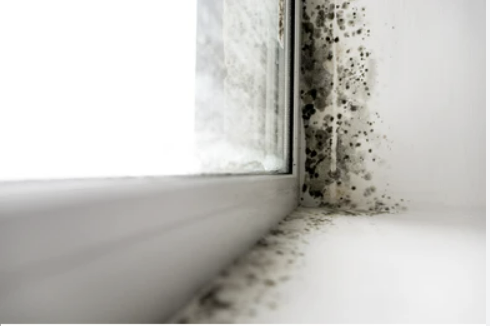
0:01 AM, 16th November 2023, About A year ago
Text Size
More than 12,000 social homes in Greater Manchester are to be treated for mould and damp problems following the release of government funding.
Earlier this year, Housing Secretary Michael Gove announced £15 million in funding to tackle damp and mould health hazards.
The government also recently announced a new ‘Awaab’s law’ that will force social landlords to fix damp and mould within strict time limits.
The toddler died in Rochdale from a respiratory condition that had been caused by exposure to mould in his social housing flat.
17 housing associations across Greater Manchester received funding to address issues related to high-risk damp and mould, along with preventative measures.
Housing providers in Greater Manchester had the opportunity to apply for a portion of the Social Housing Quality Fund, with the requirement to match 25% of the funding.
The allocated funds varied based on the severity of identified problems and proposed improvements. Rochdale, Salford, and Manchester received the largest share of the funding.
Rochdale Boroughwide Housing (RBH) received one of the highest amounts in funding. Nadhia Khan, RBH executive director of customer and community, said the the housing association was committed in dealing with damp and mould in their properties.
She said: “We have received £1.85m in funding from the Social Housing Quality Fund via the Greater Manchester Combined Authority to deliver a range of improvements to 3,721 of our customers’ homes.
“This funding will support our work on addressing damp and mould issues, including monitoring the conditions within homes after treatment which will enable us to understand early whether the works completed have been effective.”
She added: “In addition to the early identification and treatment of damp and mould, we’ll also be investing in renewal of cavity wall insulation and renewal of porches, which will improve the thermal efficiency of our homes. We are committed to investing in our homes, and this funding is in addition to the £45m we have pledged to invest over the next five years.”
Cases of damp and mould were divided into six bands, with bands one and two being the most severe and the highest risk to health and safety.
Across Greater Manchester, a total of 109 and 1,387 homes were categorised as Band one and two.
The speed of this process, which started in June, was described as “vital” by Councillor Gavin White, executive member for housing and development at Manchester City Council.
The news comes after the Housing Ombudsman revealed complaints about damp and mould are on the rise in social housing.
More than 5,000 damp and mould complaints have been escalated to the Housing Ombudsman in 2022/23.
Richard Blakeway, Housing Ombudsman, said the rise in complaints reflects changes in the sector making it easier for tenants to report issues.
He said: “The number of complaints we handle about damp and mould continues to rise and we believe this reflects social housing landlords making it easier for residents to report issues and the complexity of some of the problems that landlords are handling as well as changes taking time to embed.
“Central to our recommendations for the sector is cultural and behavioural to ensure damp and mould is treated urgently and proactively.
“While there is encouraging progress without sustained leadership there remains the risk momentum could be lost given other competing pressures.”
Previous Article
Rent increase according to inflation?